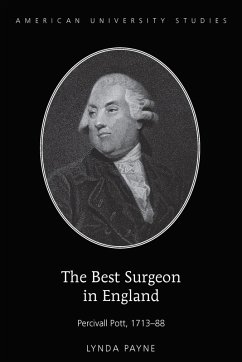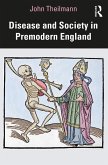Pott had more medical conditions named after him during his lifetime than any other surgeon of his era or since; analyzing what conditions surgeons claimed were theirs to manage and what ailments patients sought surgical solutions for reveals the importance and power of rhetoric in crafting the increasingly rigid definition of medicine as a sophisticated scientific activity rather than a mundane lay experience of treating sickness. The practice of naming conditions after surgeons also helps lay bare the power to classify and own certain sites in the body.
An account of Pott's life and work challenges the prevailing view in historiographical works of surgery before the era of general anesthesia as a realm of screaming patients and larger than life eccentric medical men whose primary aims were to operate as fast as possible. Through an examination of the life and work of the man rated the best surgeon in England by his contemporaries, the whole field of surgery in history becomes humanized.
Dieser Download kann aus rechtlichen Gründen nur mit Rechnungsadresse in A, B, BG, CY, CZ, D, DK, EW, E, FIN, F, GR, HR, H, IRL, I, LT, L, LR, M, NL, PL, P, R, S, SLO, SK ausgeliefert werden.
(Justin Barr, Journal of the History of Medicine and Allied Sciences, Vol 73, No 3, 2018)
«The extent of Payne's archival research into Pott is admirable and her book contains a wealth of fascinating material drawn from his case books and other manuscript sources. Taken together, these add considerably to our understanding of the nature and scope of eighteenth-century surgical ailments and treatments.»
(Michael Brown, H-Sci-Med-Tech September, 2018)
Full review









